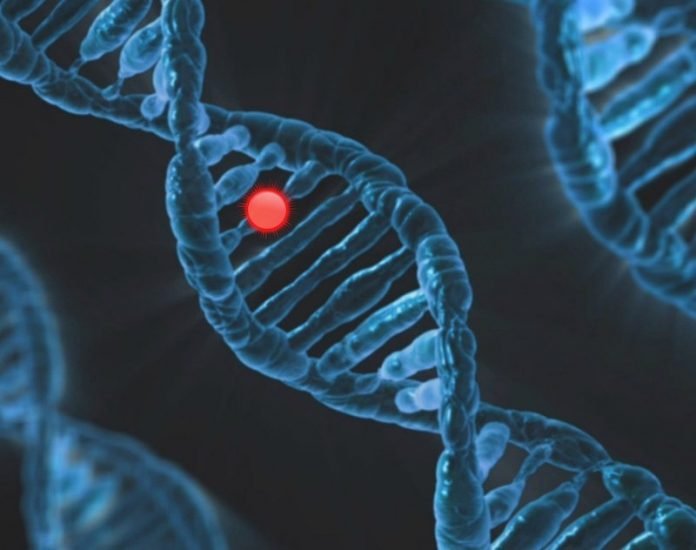
In a new study from the University of Oxford, researchers found the gene responsible for doubling the risk of respiratory failure from COVID-19.
They found 60% of people with South Asian ancestry carry the high-risk genetic signal, partly explaining the excess deaths seen in some UK communities and the impact of COVID-19 in the Indian subcontinent.
Previous work has already identified a stretch of DNA on chromosome 3 which doubled the risk of adults under 65 of dying from COVID.
However, scientists did not know how this genetic signal worked to increase the risk, nor the exact genetic change that was responsible.
In the study, the team used cutting edge technology to work out which gene was causing the effect, and how it was doing so.
They trained an artificial intelligence algorithm to analyze huge quantities of genetic data from hundreds of types of cells from all parts of the body, to show that the genetic signal is likely to affect cells in the lung.
Then using a highly accurate technique they had only just developed, the researchers could zoom down on the DNA at the genetic signal.
This examines the way that the billions of DNA letters fold up to fit inside a cell to pinpoint the specific gene that was being controlled by the sequence causing the greater risk of developing severe COVID-19.
The data showed that a relatively unstudied gene called LZTFL1 causes the effect.
The researchers found that the higher-risk version of the gene probably prevents the cells lining the airways and the lungs from responding to the virus properly.
But importantly it doesn’t affect the immune system, so the researchers expect people carrying this version of the gene to respond normally to vaccines.
The researchers are also hopeful that drugs and other therapies could target the pathway preventing the lung lining from transforming to less specialized cells, raising the possibility of new treatments customized for those most likely to develop severe symptoms.
Sixty percent of people with South Asian ancestry carried this higher-risk version of the gene compared to 15% of those with European ancestry—explaining in part the higher death rates and hospitalizations in the former group.
The study also found that 2% of people with Afro-Caribbean ancestry carried the higher risk genotype, meaning that this genetic factor does not completely explain the higher death rates reported for black and minority ethnic communities.
If you care about COVID, please read studies about prostate cancer drugs hold potential for treating COVID-19 and findings of ‘You’re not bulletproof’: 50-year-old COVID survivor urges caution, vaccination after nearly dying from virus.
For more information about COVID and health, please see recent studies about these 2 arthritis drugs can help reduce COVID-19 deaths and results showing that 160 new drugs that may fight against COVID-19.
The study is published in Nature Genetics. One author of the study is Profs. James Davies.
Copyright © 2021 Knowridge Science Report. All rights reserved.



